In this article, you will learn the characteristics of a dc shunt generator. A shunt generator is a type of dc generator in which the field winding is connected in parallel with the armature winding so that the terminal voltage of the generator is applied across it.
The shunt field winding has many turns of fine wire having high resistance. Therefore, only a part of armature current flows through shunt field winding and the rest flows through the load.
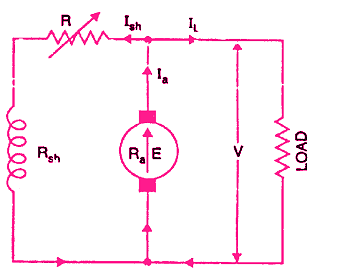
The figure shows the connections of a shunt-wound generator. The armature current Ia splits up into two parts; a small fraction Ish flowing through shunt field winding while the major part IL goes to the external load.
Open circuit characteristic
The Open circuit characteristic (OCC) of a shunt generator is similar in shape to that of a series generator as shown in the figure below.
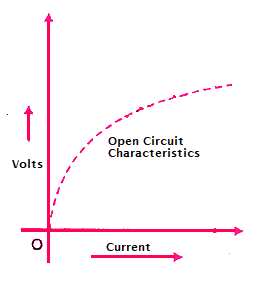
The line OA represents the shunt field circuit resistance. When the generator is run at normal speed, it will build up a voltage OM.
At no-load, the terminal voltage of the generator will be constant (= OM) represented by the horizontal dotted line MC.
Internal characteristic
When the generator is loaded, flux per pole is reduced due to armature reaction.
Therefore, e.m.f. E generated on load is less than the e.m.f. generated at no load.
As a result, the internal characteristic (E/Ia) drops down slightly as shown in Fig (ii).
Curve 2 shows the external characteristic of a shunt generator.
It gives the relation between terminal voltage V and loads current IL.
Note. It may be seen from the external characteristic that the change in terminal voltage from no-load to full load is small. The terminal voltage can always be maintained constant by adjusting the field rheostat R automatically.
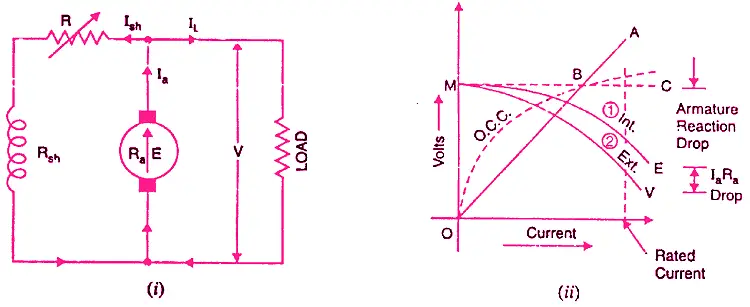
.png)
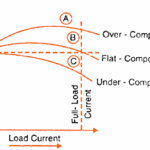
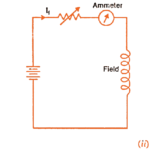
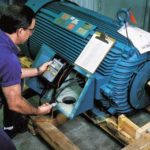
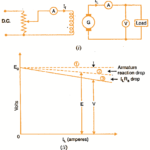
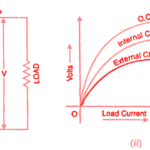
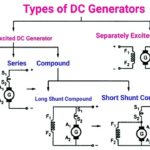
Comments are closed.